Secrets Of English Grammar – Say Goodbye to Mistakes
Sentence structure is a fundamental piece of correspondence. It is the underpinning of any language and dominating it can assist you with discussing really with others. Language slip-ups can be an obstruction to compelling correspondence, as they can prompt misconceptions and disarray.
Great syntax assists you with articulating your thoughts obviously and precisely, which is significant in both composed and spoken correspondence. It likewise assists you with making a decent impact on others, as it shows that you are knowledgeable in the language. Besides, dominating English syntax will assist you with understanding the subtleties of the language better, considering a more exact articulation of your viewpoints and thoughts.
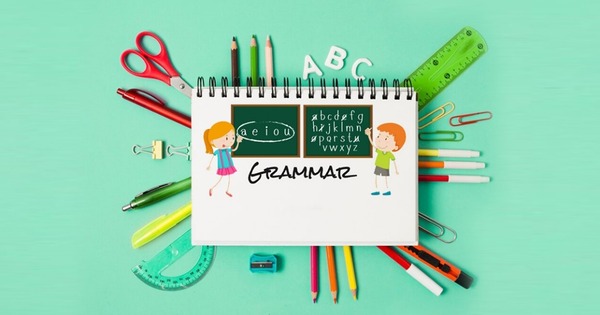
Image by Freepik
Subject-Action Word Arrangement
Here are a few instances of right subject-action word understanding: – The kid plays soccer. (particular subject, solitary action word) – The young men play soccer. (plural subject, plural action word) – The young lady has a canine. (particular subject, solitary action word) – The young ladies have canines. (plural subject, plural action word) – The group is winning. (particular subject, solitary action word) – The groups are winning. (plural subject, plural action word)
Quite possibly of the most well-known botch settled on in the subject-action word understanding is utilizing a plural action word with a solitary subject. This blunder happens when the subject is really a gathering or things, however the action word is formed as though the subject were only one individual or thing. To keep away from this misstep, consistently ensure that the action word concurs with the genuine subject of the sentence.
Another normal error is utilizing some unacceptable type of the action word when the subject is plural. For instance, you could see a sentence like this: “The information is showing that deals are down.” In this sentence, the subject is really information (plural), however the action word is in the solitary structure. To stay away from this mix-up, simply try to utilize the right type of the action word (for this situation, the plural structure “are”).
English Language Structure Rules

Image by Freepik
- Each sentence should have a subject and an action word.
- Subjects and action words (also referred to as action verbs) should concur with each other in number (solitary or plural).
- Each sentence should offer a total viewpoint.
- Sentences should be appropriately interspersed. keeping these fundamental syntax guidelines will assist you with composing clear and succinct sentences.
Subject-action word understanding, action word tenses, articles, relational words, and pronouns are terrifically significant components of building right English sentences. Every one of these components fills a particular need and assists with making significance in a sentence. Subject-action word understanding guarantees that the subject and action word of a sentence concur in number.
This is significant on the grounds that it assists with staying away from disarray and uncertainty. Action word tenses are significant in light of the fact that they show when an activity occurred. Articles, relational words, and pronouns are exceedingly significant on the grounds that they help to make linguistically right sentences or for content optimization.

Image by brgfx on Freepik
The English language has various action word tenses that can be utilized to communicate activities that have occurred previously, present, or future. The current state is utilized to portray activities that are occurring now or later on. The previous tense is utilized to portray activities that have proactively occurred. The future tense is utilized to depict activities that will occur from here on out.
Action Word Tenses
It is essential to utilize the right action word tense in English sentences. This will guarantee that your significance is conveyed precisely and that your peruser comprehends what you are attempting to say. Utilizing the mistaken action word tense can create turmoil and make your composing hazy.
The English language has twelve action word tenses. Each strained has an alternate capability and ought to be utilized in various circumstances. To more readily comprehend how to utilize each strained.
We should investigate a few models:
- Current state: I’m composing an article.
- Past tense: I composed an article.
- Future tense: I will compose an article.
- Present wonderful tense: I have composed an article.
- Past amazing tense: I had composed an article.
- Future amazing tense: I will have composed an article.
- Present moderate tense: I’m composing an article.
- Past moderate tense: I was composing an article.
- Future moderate tense: I will compose an article.
- Present wonderful moderate tense: I have been composing an article.
- Past amazing moderate tense: I had been composing
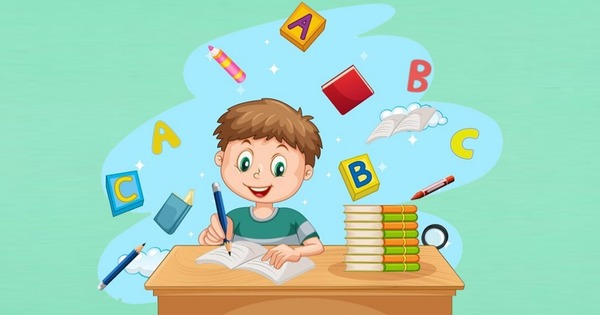
Image by brgfx on Freepik
Articles
The utilization of articles in English sentences can be mistaking for non-native speakers. This is on the grounds that the articles (a, an, the) are utilized diversely in English than in different dialects. In English, the articles are utilized to flag regardless of whether a thing is explicit. For instance, on the off chance that I say “I saw the canine,” this implies I saw a particular canine. Yet, on the off chance that I say “I saw a canine,” this implies I saw any canine, not a particular one.
Another standard is that you ought to utilize “a” preceding words that start with a consonant sound and “an” preceding words that start with a vowel sound. For instance, you would agree “a book” however “an apple”. Moreover, on the off chance that the word starts with a quiet letter or an abbreviation, you ought to in any case utilize the article in light of the main letter. For instance, “a college” yet “60 minutes”. Considering these guidelines, you will actually want to utilize “a” and “an” in your composing with certainty!
Relational Words
Relational words are a significant piece of English language and are utilized to interface words, expressions, and conditions. They help to make significant sentences by giving data about the connection between various components in a sentence. Knowing how to utilize relational words accurately is fundamental for powerful correspondence in English.
Normal relational words incorporate “in,” “on,” “at,” “from,” and “to.” Knowing how to accurately utilize relational words is a significant piece of dominating the English language. Instances of right purposes of relational words include: “The feline is on the table”; “She went to the store”; “He lives in New York City”; and “I’m from France.”
Pronouns
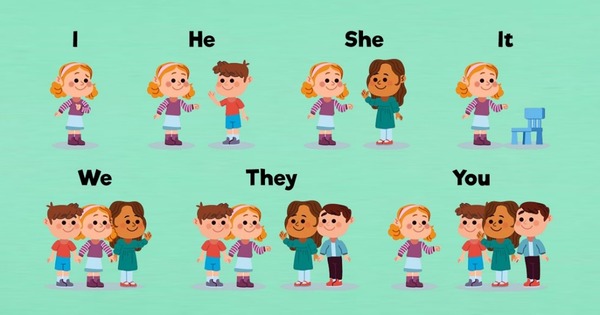
Image by pikisuperstar on Freepik
Pronouns are a significant piece of English syntax and are utilized to allude to individuals, spots, things, or thoughts without rehashing the thing. They can be utilized in both spoken and composed English and can assist with making sentences more succinct and more obvious.
Pronouns can likewise be utilized to add accentuation or lucidity while alluding back to a formerly referenced thing. Understanding how pronouns work in English sentences is fundamental for compelling correspondence.
In English, there are seven pronouns that can be utilized: I, me, he, she, they, them, and it. Every pronoun has a particular reason and ought to be utilized in the right setting.
For instance, “I” is utilized while alluding to oneself while “me” is involved while alluding to oneself as an object of a sentence. “He” and “she” are utilized while alluding to a male or female separately while “they” and “them” are plural types of these pronouns. At long last, “it” is utilized for non-living things or creatures.
Normal Sentence Structure Slip-Ups
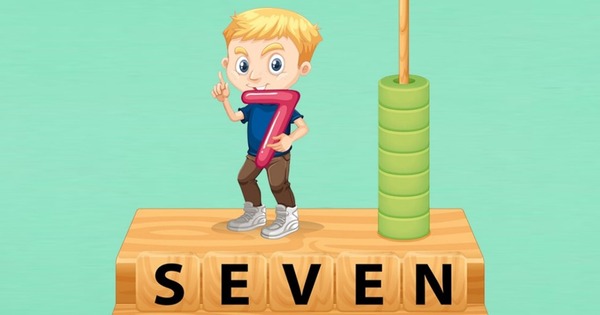
Image by brgfx on Freepik
Here are the absolute most normal slip-ups that new English students make, alongside tips on the best way to fix them:
Utilizing some unacceptable action word tense. English has a wide range of action word tenses, and it tends to be interesting to know which one to utilize. An effective method for recollecting the right action word tense is to contemplate the time span of the activity. For instance, assuming you are looking at something that occurred before, you would utilize the previous tense. Use grammarchecker.com to double check your grammar.
Pursuing subject-action word arrangement blunders. Subject-action word understanding is the standard that expresses that the subject of a sentence should concur with the action word in number. For instance, assuming that the subject is particular, the action word should likewise be solitary. What’s more, assuming the subject is plural, the action word should likewise be plural. Thus, you would agree that “The canine is woofing” (solitary subject, particular action word) yet “The canines are yapping” (plural subject, plural action word).
Utilizing some unacceptable relational words. Relational words are precarious words that can be utilized in various ways. An effective method for learning the right relational word to utilize is to focus on how local speakers use it. You can likewise look into relational words in a word reference or syntax book.
Utilizing “I” versus “Me”
“I” and “me” are both individual pronouns, yet they are utilized in various ways. “I” is utilized as the subject of a sentence, while “me” is utilized as the object of a sentence.
A few right models are:
- I went to the store.
- My companion and I went to the store.
- The store representative aided me.
- The store representative aided my companion and me.
A few mistaken answers are:
- Me went to the store.
- The store assistant aided I.
In both of these sentences, the pronoun is utilized erroneously. The primary sentence, “me” ought to be supplanted with “I.” In the subsequent sentence, “I” ought to be supplanted with “me.”
There are a couple of different things to remember while utilizing “I” and “me.” First, you ought to never utilize “I” and “me” together in a prepositional expression. For instance, you ought to say “with my companion” rather than “with I and my companion.” Second, you ought to never utilize “I” and “me” together in a compound subject. For instance, you ought to say “my companion and I” rather than “I and my companion.”
Subject-Action Word Conflict

Image by brgfx on Freepik
Subject-action word understanding is a syntactic decide that expresses that the subject of a sentence should concur with its action word in number. At the end of the day, on the off chance that the subject is solitary, the action word should likewise be particular. Assuming the subject is plural, the action word should likewise be plural.
There are a couple of normal blunders that individuals make with regards to subject-action word understanding. One normal mistake is to utilize a plural action word with a solitary subject. For instance, you could say “The information is” rather than “The information are.” Another normal mistake is to utilize a particular action word with a plural subject. For instance, you could say “The kids is” rather than “The kids are.”
Abusing Articles

Image by brgfx on Freepik
One normal mix-up is to utilize the unmistakable article when the endless article is required. For instance, you could say “I saw the canine” when you intend to say “I saw a canine.” This is on the grounds that you are not alluding to a particular canine that has proactively been referenced.
Another normal error is to utilize the endless article when the positive article is required. For instance, you could say “I saw a canine” when you intend to actually say “I saw the canine.” This is on the grounds that you are alluding to a particular canine that has proactively been referenced.

Image by brgfx on Freepik
Now and again, individuals will overlook the article out and out. This can happen when the thing is particular and uncountable. For instance, you could say “I like canines” rather than “I like the canines.” This is on the grounds that the thing “canines” is particular and uncountable, so it needn’t bother with an article.
In some cases, individuals will utilize some unacceptable article. For instance, you could say “I saw an apple” when you intend to actually say “I saw the apple.” This is on the grounds that the thing “apple” is particular and countable, so it ought to be gone before by the distinct article “the.”
Abusing Relational Words
Here are a typical ways of abusing relational words:
Utilizing some unacceptable relational word with a specific thing. For instance, you could say “I inhabit the store” when you intend to say “I live close to the store.”
Utilizing a relational word with an action word when an alternate grammatical feature is required. For instance, you could say “I’m holding up at the transport” when you intend to say “I’m hanging tight for the transport.”
Overlooking a relational word out and out. For instance, you could say “I will school” when you intend to say “I’m going to the school.”
Pronoun Utilization Mistakes
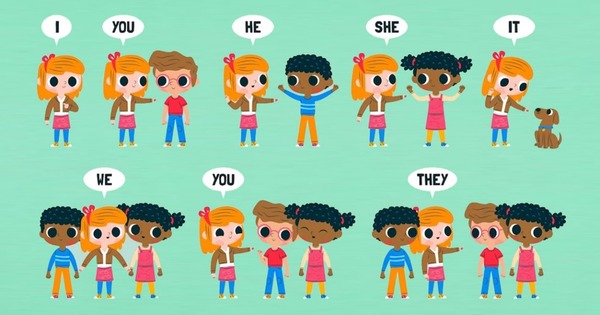
Image by pikisuperstar on Freepik
Here are some typical ways of abusing pronouns in English syntax:
Utilizing some unacceptable pronoun cases. Pronouns have various cases, contingent upon their capability in the sentence. For instance, the subject case is utilized for pronouns that are the subject of a sentence, while the item case is utilized for pronouns that are the object of a sentence. It is essential to involve the right case for every pronoun, or your sentence will sound erroneous.
Utilizing some unacceptable pronoun structure. There are various types of pronouns, contingent upon whether they are solitary or plural, and whether they are manly, ladylike, or fixed. It is essential to involve the right structure for every pronoun, or your sentence will sound inaccurate.

Image by brgfx on Freepik
Utilizing some unacceptable pronoun reference. Pronouns ought to allude to explicit things in the sentence. In the event that a pronoun doesn’t allude to a particular thing, your sentence will confound.
Utilizing an excessive number of pronouns. Pronouns can make your composing sound rough and casual. It is smarter to utilize things rather than pronouns whenever the situation allows.
Ways To Dominate English Language Structure
Here are a few hints on the most proficient method to rehearse English sentence structure in your daily existence:
Peruse: Perusing is an extraordinary method for presenting yourself to various linguistic designs and sentence designs. At the point when you read, focus on the manner in which the essay writing utilizes sentence structure to make meaning. You can likewise attempt to recognize any syntactic mistakes that you notice and check whether you can address them.
Compose: Composing is one more incredible method for rehearsing language. At the point when you compose, attempt to be aware of the sentence structure decides that you are utilizing. You can likewise attempt to challenge yourself by utilizing more perplexing syntactic designs.
Talk: Conversing with local English speakers is an extraordinary method for getting criticism on your sentence structure. At the point when you converse with local speakers, request that they right any syntactic blunders that you make. You can likewise attempt to copy the manner in which they address work on your own language.
Practice Consistently
Here are a few hints on the best way to rehearse English sentence structure in your regular daily existence:
Understand books and articles. Perusing opens you to various linguistic designs and assists you with fostering a superior comprehension of how English punctuation functions.
Watch Films and Television Programs

Image by pch.vector on Freepik
Watching English-language media can assist you with further developing your listening perception and furthermore. They will give you a superior vibe for how English punctuation is utilized in regular discussions.
Pay Attention To Music
Standing by listening to English-language music can assist you with further developing your listening cognizance and furthermore assist you with learning new jargon.
Converse with Local English Speakers
Conversing with local English speakers is an incredible method for rehearsing your talking abilities and furthermore getting criticism on your language structure.
Take an English Language Structure Class
In the event that you’re significant about working on your English sentence structure, taking an English syntax class can be an extraordinary method for learning the fundamentals and get criticism on your work.
Use Assets
Language structure assets can be useful in further developing your syntax abilities in various ways. They can give you data about various linguistic ideas and rules, assist you with distinguishing syntactic mistakes in your composition, and give you criticism on your language abilities.
Here are a few instances of various language assets that you could utilize:
Syntax books: Language books are an incredible method for finding out about various syntactic ideas and rules. They ordinarily give clear clarifications of punctuation rules, as well as instances of how to involve them in sentences.
Punctuation sites: There are numerous syntax sites accessible on the web. These sites can furnish you with data about various syntactic ideas and rules, as well as training works out.
Syntax applications: There are likewise various punctuation applications accessible for cell phones and tablets. These applications can assist you with finding out about various syntactic ideas and rules, as well as recognize linguistic blunders in your composition.
Sentence structure classes: In the event that you are significant about further developing your punctuation abilities, you might need to consider taking a syntax class. This can be an extraordinary method for finding out about various linguistic ideas and rules in an organized climate.
Get Input: Input is fundamental for further developing your English language structure abilities. It can assist you with recognizing your shortcomings and regions where you really want to get to the next level. It can likewise assist you with learning new syntax ideas and rules.
There are far to get criticism on your English sentence structure:
Ask your educator. In the event that you are taking an English class, your educator is an extraordinary asset for criticism of your syntax abilities. They can assist you with distinguishing your shortcomings and give you direction on the best way to get to the next level. You may also want to enlist the services of a private English tutor.

Image by brgfx on Freepik
Join a Web-Based Local area
There are numerous web-based networks where you can get criticism on your English language structure. These people group can be an incredible method for interfacing with different students and getting counsel from experienced journalists.
Utilize a Punctuation Checker
A punctuation checker is a product program that can assist you with distinguishing linguistic blunders in your composition. Nonetheless, it is critical to take note of that language structure checkers are flawed and they can now and again recognize blunders that are not really there.

Image by brgfx on Freepik
Understand Books and Articles
Understanding books and articles can assist you with further developing your syntax abilities by presenting you to various linguistic designs and sentence designs.
Compose Consistently
The more you compose, the better your sentence structure abilities will turn into. At the point when you compose, attempt to be aware of the sentence structure decides that you are utilizing. You can likewise attempt to challenge yourself by utilizing more complicated linguistic designs.
Conclusion
By following these tips, you can get criticism on your English punctuation and further develop your language structure abilities over the long haul.
It is vital to involve right sentence structure to actually convey. At the point when you utilize right punctuation, your composing will be clear, brief, and straightforward. It will likewise make you sound more instructed and proficient.
Input is fundamental for further developing your English syntax abilities. It can assist you with distinguishing your shortcomings and regions where you really want to move along. It can likewise assist you with learning new language structure ideas and rules.
Explore the benefits of integrating language learning into early education to improve grammar and literary skills.



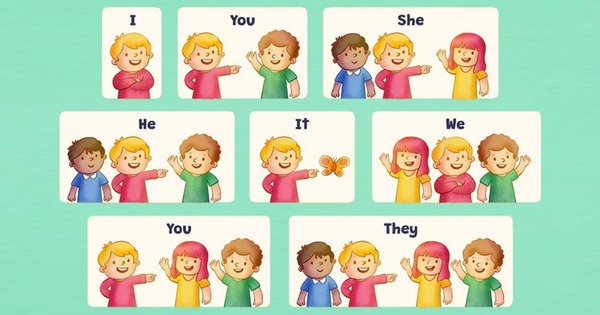


 Again, whether you’re a teacher or a parent, you understand how important preschool is. It’s a critical stage for acquiring language development, problem-solving, emotional regulation, and other fundamental skills. The problem is that with ADHD, these developmental milestones may become more challenging to achieve. What can you do if that’s the case? Utilize tools that can assist children as they develop during their preschool years, like the
Again, whether you’re a teacher or a parent, you understand how important preschool is. It’s a critical stage for acquiring language development, problem-solving, emotional regulation, and other fundamental skills. The problem is that with ADHD, these developmental milestones may become more challenging to achieve. What can you do if that’s the case? Utilize tools that can assist children as they develop during their preschool years, like the 







